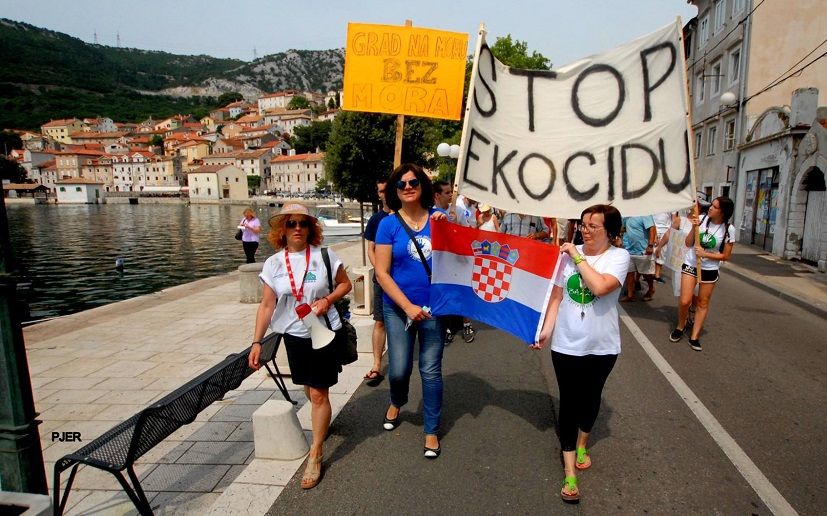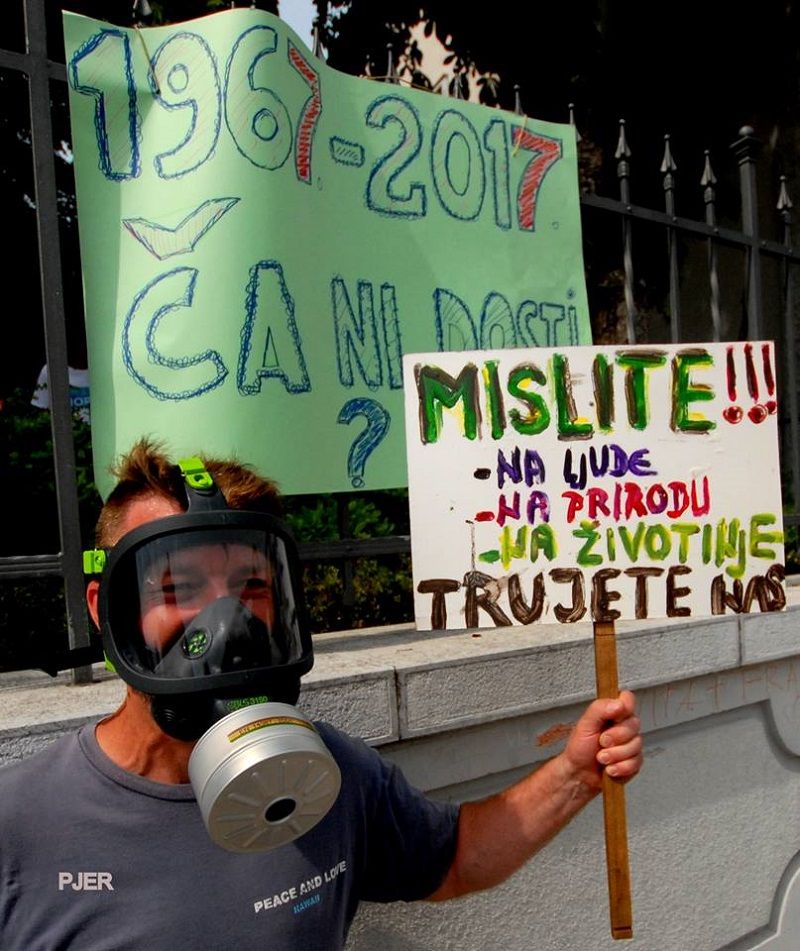Locals in Bakar have been tolerating poor living conditions for too long, and have had enough of pollution coming from the technologically outdated harbour
Bakar, a small charming town tucked away in a bay of the same name on Kvarner, has a complicated history of industrial activity. Its favourable position, mild climate and a picturesque waterfront make it a perfect travel destination – the town is lovely, has impressive history, there's enough to see and do, with no annoying crowds to ruin the experience. However, both the prospects for tourism and everyday life of Bakar's residents are shadowed – almost literally – by the industrial zone on the outskirts of the bay, which has been a source of pollution since it started operating half a century ago.
On one hand, the local industrial zone has always been the foundation of economic growth and development of the wider Bakar area, and it can't be disputed the town and its surroundings profited from industrial activity. The main problem is the technological obsolescence of the entire zone: it hasn't been modernised in 50 years it's been in operation, and the citizens are now protesting the dire state of affairs in the area.

The citizens' initiative BazZa (Za Bakarski zaljev i zaleđe / For Bakar Bay and Hinterland) organised the first official protest on Saturday, June 24, as reported by Novi list. Around a hundred people marched the streets of Bakar to protest the pollution caused by the poor technical conditions in the local harbour; they wore gas masks and banners with anti-pollution slogans such as 'Stop the ecocide', 'Seaside town with no sea', '1967-2017 haven't we had enough?' It seems they have, as they are fed up with polluted sea water and clouds of dust that are ruining everyone's quality of life.
"Since 1967 when Bakar harbour started operating, they have been using the same technology, there have been no investments, especially when it comes to ecology. Bakar is a seaside town without the sea - we don't have a town beach. What we have are photos showing harbour waste getting shoveled into the sea. The cargo is transported in open railroad cars, and as it's stored too high in the harbour, it gets dispersed around the bay by bura wind. Tons of coal end up in the air. We report everything to the authorities for inspection, get a reply that our report has been noted, but get no feedback after that. The Town of Bakar is officially opposed to the harbour, but for the last 10 years, nothing has been done on that front", said BazZa member Dunja Sabljar Štrbac.

Another supporter of the initiative, Dunja Vladislović, explained the protest is a manifestation of a democratic society that enables the citizens to take matters into their own hands. "This is the first in a series of protests we'll be organising this year, and the next one is planned for September. If we don't see any progress and noticeable results, and by that we mean investing into technology and ecology, we'll block [the access to] the harbour with boats. We're calling other eco associations to join us. It's sad the protest was attended by only three councilmen, two of them from the opposition. We got the information that nobody from the Town would join us because they think problems like these are solved by taking the diplomatic route", said Vladislović.
The ecology fund in the town budget amounts only to 60.000 kuna, and the councilmen who attended the protest said they want cleaner Bakar, modernisation of the harbour and the construction of a new sewage system.
The locals are rightfully bitter and are rooting for change. A retired resident of Bakar Karmela Klepac said she was protesting not only for herself, but for her children and grandchildren as well: "I'm here because it's time to stop the ecocide. This can't be tolerated anymore, the smoke reeks day and night, our houses are filthy, our fruit trees dusty, our sea polluted. I came to say NO for the future generations."

Image source: Nova riječka enciklopedija - Fluminensia, contributed by Pero Lovrović Pjer


